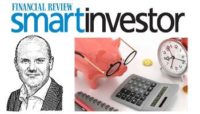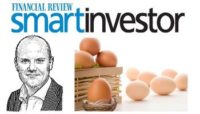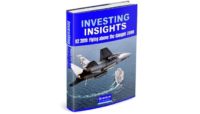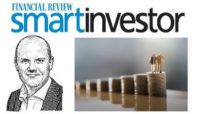When you take control of your family’s financial future, cut through complexity to meet your retirement goals.
Note: This article by Tim Mackay was originally published in the Australian Financial Review. You can view it on the AFR website [here] ($paywall)
Recent Australian Tax Office statistics reveal that the establishment of self-managed superannuation funds (SMSFs) in the 2017-18 financial year (25,034) was the lowest in more than a decade. Even allowing for wind-ups of existing funds, 2017-18 experienced the lowest growth in SMSFs since 2012 (14,505 net growth in funds).
So what’s going on?
Well, SMSFs are still growing in number but they’re just not growing as fast. With 1.1 million SMSF members out of a total population of 25 million, at some stage we will reach a saturation point.
As much as 91.5 per cent of portfolio returns are determined by asset allocation decisions, far less from individual investment selection.
In addition, recent bad press about high-fee SMSFs with small balances, endemic issues with SMSF advice and increased regulatory focus on leveraged property investments have removed some SMSF gloss.
What does this all mean for you? My advice is to do nothing rash, take stock and re-evaluate your SMSF. I’m a big fan of reducing complexity in your SMSF.
The medieval philosopher William of Occam established the principle that of two equivalent explanations, all other things being equal, the simpler one is preferred. We know this as “Occam’s razor”.
When you take control of your family’s financial future with an SMSF, cut through complexity to meet your retirement goals. You should seek to simplify your structure, simplify your fees, simplify your investments and simplify your service providers.
Roughly 93 per cent of SMSFs have one or two members where the focus is you and your partner. Four-member funds have fallen since 2012, while three-member funds have remained stable. Ignore the hype of six-member funds, it’s a solution looking for a problem.
The royal commission has taught us to be on top of fees. Fees for dead people, fees for no service, commission-driven behaviour – sadly, we saw it all. So know what you are paying, to whom and for what service.
For shares and exchange traded funds (ETF), keep track of brokerage costs. For managed funds, keep track of high fees.
Hidden fees
If your SMSF is on a platform, compare the cash and term deposit interest rates with market rates. A low interest rate is just another hidden fee. Platforms add to SMSF fees and complexity while making your adviser’s job easier. Why pay for this privilege?
Whichever way you choose to pay your adviser (commissions, percentage of assets, hourly fees), know the actual cost. In my opinion, a fixed cost agreed each year is simple and transparent.
Warren Buffett advises us to “avoid businesses whose futures you can’t evaluate”. In your SMSF, stick to investments you understand that fit within your investment strategy and asset allocation.
A laundry list of 20 to 30 stocks (or more) can bury you under a mountain of complex paperwork, adding nothing. If you cannot explain the rationale for any single investment, then wield the razor.
A well-known study by Brinson, Singer and Beebower (1991) showed that, on average, 91.5 per cent of portfolio returns are determined by asset allocation decisions, while less than 5 per cent of returns come from individual investment selection. So dedicate most effort to your asset allocation.
Some 150 years after William of Occam, the genius Leonardo da Vinci improved “Occam’s razor” with his view that “simplicity is the ultimate sophistication”. That’s how I view ETFs.
SMSFs were early adopters of ETFs as beautifully simple investment tools focused on asset allocation. Low cost and liquid with instant diversification, they simplify paperwork and reduce your investments.
Simplify your SMSF by working with expert service providers who truly add value. By simplifying your SMSF, you simplify the financial accounts and reduce your accounting and audit fees.
Six hundred years after William of Occam, another genius, Albert Einstein, argued that we should “make everything as simple as possible, but not simpler”.
Undoubtedly some readers will have more complex situations where simplification is difficult. You should seek expert SMSF advice. We also know that the rules governing SMSFs are complex, bureaucratic and ever-changing, regardless of who rules in Canberra. So some complexity will always remain.
You should never lose sight of your goal to support your dream lifestyle in retirement. Continually ask yourself: “What adds unnecessary complexity in my SMSF and do I really need it?”
Tim Mackay is an independent advisor at Quantum Financial. You can view his personal website at www.theindependentfinancialadvisor.com.au
You can view the original Australian Financial Review article by Tim Mackay ‘SMSF tips: How to simplify your self-managed superannuation fund’ in PDF format below.
Other Australian Financial Review articles by Tim Mackay that you may find interesting:
- Industry funds’ DIY options could help you keep franking credits
- When to close your SMSF
- Who to include in your self-managed super fund
- How to keep your SMSF alive
- Top 100 SMSFs control $8 billion
- Why inviting your kids into SMSF is a bad idea
- SMSF tips: Should you really set up a self-managed superannuation fund?
- Complexity helps justify fees
- Banking royal commission: what SMSF investors need to know
- Why SMSF advisers need to lift their game
- An SMSF action plan for 2019 to keep your fund running smoothly








Leave A Comment